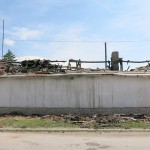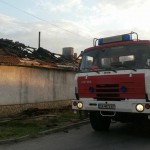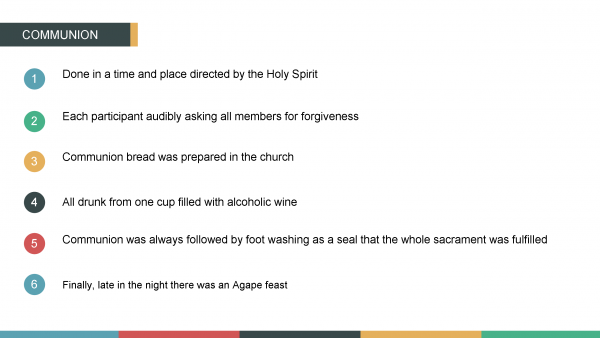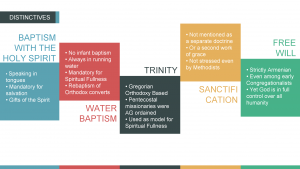The Guardian: US to deploy marine unit in Bulgaria
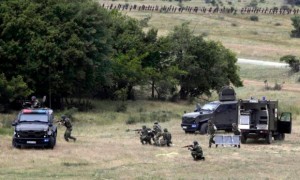 Troops with tanks, armored vehicles and artillery to be in place by September to help counter European concerns about Russia’s involvement in Ukraine
Troops with tanks, armored vehicles and artillery to be in place by September to help counter European concerns about Russia’s involvement in Ukraine
A Marine Corps unit equipped with tanks, light armored vehicles and artillery will be sent to Bulgaria in September as part of US efforts to reassure Nato allies worried by Russia’s involvement in Ukraine. Brig Gen Norman Cooling, the deputy commander of the US marines in Europe and Africa, said on Thursday that 155 troops equipped with four Abrams battle tanks, six light armored vehicles and three howitzers were scheduled to be deployed at the Novo Selo training area by early September. He spoke as NATO defense ministers met in Brussels.
“It’s certainly our intent to convince the Russians and Mr Putin to refrain from aggression and return to the community of peaceful nations,” Cooling said.
The US defense secretary, Ash Carter, said this week that more US military equipment would be positioned in Estonia, Lithuania, Latvia, Bulgaria, Romania, Poland and Germany as NATO seeks to bolster its forces in eastern Europe. Cooling said that in addition to being a deterrent, the unit would train with Bulgarian, Romanian and other troops over the next 18 months to improve US forces’ ability to operate with counterparts using different equipment and methods. “Ideally this culminates with integrated exercises, with units from more and more allied nations that are able to call for fire from one another’s artillery, our tanks maneuver in support of their infantry units, and vice versa,” he said.
The Story of the Bulgarian Bible (video)
Ministering at the Bulgarian Church in London
Bulgarian Church of God Building Burnt Down
The building of the Church of God in the city of Elin Pelin burnt down last week after a fire was set on the premises in the middle of the night. The church was built years ago and has faithfully served as a beacon in the local community until now. Under the current conditions it is impossible for the congregation to meet as at the same time they cannot make any plans for rebuilding until the investigation is over.
Pastor Tommy Karakolev, who is one of the oldest ordained ministers in the denomination, has addressed colleagues and friends for help. Through the years, his congregation has produced many ministers and pastors serving in churches in Bulgaria and abroad, and they have been all called to assist with their churches in any way they can. Please join us in prayer for the rebuilding of the church in an even better way and open doors for the congregation to continue meetings while the rebuilding lasts.

Historical and Doctrinal Formation of Holiness Teachings and Praxis among Bulgarian Pentecostals
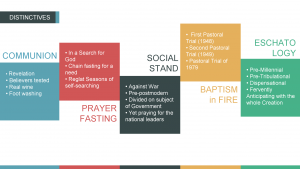 Research presentation prepared for the Society of Pentecostal Studies, Seattle, 2013 – Lakeland, 2015, thesis in partial fulfillment of the degree of D. Phil., Trinity College
Research presentation prepared for the Society of Pentecostal Studies, Seattle, 2013 – Lakeland, 2015, thesis in partial fulfillment of the degree of D. Phil., Trinity College
In conclusion, it must be noted that like many other places around the world, Bulgarian Pentecostalism began and continues to be in the periphery of both social and religious life. The movement has been persecuted as new, extreme, outcast and even satanic, but in the end Pentecostalism prevailed from the periphery. The only problem with holding strong in the periphery of society is that you spend all your money, all your time, all your motivation, everything you have to change the center – to change reality itself. It demands an extreme internal passion to continue and to become a movement of social influence. For the external observer this makes no sense. The time and resources spent could be so much helpful somewhere else. Perhaps, in an environment that is more suitable for the center – more controlled by the center. And an environment that does not make the center look bad.
But when this environment is not the center itself, then the periphery becomes a public enemy to the centralized society and is discarded as crazy, obscene and even inhumane. To the point that after giving it all, you start to feel like it was all spent for nothing.
Then you get back to the mission that is more important than our feelings or emotions and convince yourself with all you have left, that the end result is worthy. And then one day you wake up in the center of reality. Even more, you become the center of reality.
And the question remaining is how to balance the center with the periphery. If we were always in the center of culture, religion and economics, we would have never heard the voice of the God of the periphery. The God of the enslaved, oppressed, persecuted, poor, sick and suffering – God of the miraculous…
Pacifism as a Social Stand for Holiness among Early Bulgarian Pentecostals
 Historical and Doctrinal Formation of Holiness Teachings and Praxis among Bulgarian Pentecostals (Research presentation prepared for the Society of Pentecostal Studies, Seattle, 2013 – Lakeland, 2015, thesis in partial fulfillment of the degree of D. Phil., Trinity College)
Historical and Doctrinal Formation of Holiness Teachings and Praxis among Bulgarian Pentecostals (Research presentation prepared for the Society of Pentecostal Studies, Seattle, 2013 – Lakeland, 2015, thesis in partial fulfillment of the degree of D. Phil., Trinity College)
When Pentecostalism began to spread rapidly in Bulgaria in the 1920s, it was viewed hostile as by both Protestant and Orthodox traditions. Not fasting during lent and not sacrificing for the dead, not honoring Mary or the saints was all detrimental in the formation of the identity of Pentecostal churches in Bulgaria. Even insignificant things like not wearing a cross, or not making the sign of the cross and not lighting candles and incense were noticed and severely criticized by the surrounding culture. And of course not drinking alcohol in Bulgaria and the Pentecostal abstinence was met with enormous opposition from other religious groups. Along with that any benevolence, social involvement, spiritual upbringing of minors (including sport actives) was all condemned as harmful protestant propaganda.
But one specific evangelical stand could never be forgiven – the protestant pacifism in the form of conscientious objection against carrying arms. For the newly re-born Balkan state, in a place where war has been ongoing for centuries, to refusal to go to war was essentially to refuse to be a Bulgarian.
The pacifism of Bulgaria’s evangelicals was silent but powerful against both Hitler’s fascism and the militant atheism of the coming Communist Regime. Their deep Christian conviction simply did not allow them to kill, carry a weapon, imprison another human being, swear allegiance to the communist state or take orders from another authority but God. And for their stand, many ministers and believers paid a heavy price. About 40 ministers and members of the Bulgarian Church of God alone were sentenced to hard prison labor for noncompliance with the mandatory military service. Hundreds more known and unknown believers from other evangelical churches followed.
The Practice of Corporate Holiness within the Communion Service of Bulgarian Pentecostals
by Dony K. Donev, D.Min.
Historical and Doctrinal Formation of Holiness Teachings and Praxis among Bulgarian Pentecostals (Research presentation prepared for the Society of Pentecostal Studies, Seattle, 2013 – Lakeland, 2015, thesis in partial fulfillment of the degree of D. Phil., Trinity College)
Pentecostal identity was corporately practiced and celebrated within the fellowship of believers through the partaking of Holy Communion. We have otherwise extensively described the Communion service among Bulgaria’s conservatives in Theology of the Persecuted Church (Part 1: Lord’s Supper https://cupandcross.com/theology-of-the-persecuted-church/). Therefore, here we offer just a brief overview of its main characteristics.
- It was done in a time and place directed by the Holy Spirit
- If some did not have water baptism they were taken to a close by river to be baptized while the rest of the church prayed
- Upon returning, if some did not have yet the baptism with the Holy Spirit, the church would pray until all were baptized
- It began with each participant audibly asking all members for forgiveness
- they would also audible respond with the words: WE FORGIVE YOU and may GOD also forgive you
- The communion bread was prepared on the spot baked by women whose names were also reveled in prayer
- All drank from one cup, which strangely for their strict practice of abstinence from alcohol, was filled with alcoholic wine
- Communion was served only to those who had the fullness of the Spirit, and had just requested and were given forgiveness
- The presbyter would quote Jude 20 to each partaking believer thus directing them to audibly speak in tongues before they could participate in communion
- Interpretation often followed to confirm the spiritual stand of the believer
- If there were any leftovers, the Communion elements were served again until all was used
- Communion was incomplete without foot washing as a seal that the whole sacrament was fulfilled.
Doctrine of Free Will among Bulgarian Protestant and Pentecostal Believers
Historical and Doctrinal Formation of Holiness Teachings and Praxis among Bulgarian Pentecostals (Research presentation prepared for the Society of Pentecostal Studies, Seattle, 2013 – Lakeland, 2015, thesis in partial fulfillment of the degree of D. Phil., Trinity College)
Another peculiar characteristic present among early Pentecostals around the globe was the subject of free will. This was not a problem for the movement in Bulgaria. As strange as it may sound, among all publications and teachings by missionaries in Bulgaria during the 19th century there is no mention of Calvinism, election or predestination. Because Bulgaria’s traditional Eastern Orthodox orientation, both Congregational and Methodist missionaries taught Armenian free will. Even though many Bulgarian ministers were educated in the Calvinistic schools like Princeton and Auburn, Calvinism never picked up among Bulgarian Protestants. With the explosive growth of Bulgaria’s Pentecostals in the 1920s, this Armenian theological heritage was widely accepted amongst the movement.
Sanctification and Personal Holiness among Early Bulgarian Pentecostals
Historical and Doctrinal Formation of Holiness Teachings and Praxis among Bulgarian Pentecostals (Research presentation prepared for the Society of Pentecostal Studies, Seattle, 2013 – Lakeland, 2015, thesis in partial fulfillment of the degree of D. Phil., Trinity College)
With all said about the importance of Spirit baptism and the importance of the Trinity in the Pentecostal experience of the believer, it comes as a great surprise that sanctification was never mentioned as a specific doctrine among early Bulgarian Pentecostals. Voronaev’s teaching included: (1) salvation through new birth, (2) baptism with the Holy Spirit, (3) healing and (4) the second return of Christ. Sanctification was never specifically mentioned as a separate doctrine.
To this day, sanctification is not an official doctrine for the Evangelical Methodist Episcopal Church of Bulgaria. In 1928, Bulgaria’s Pentecostal Union also included holiness as number ten in their first bylaws. Sanctification was not defined as a second work of grace, but as a “continuous life of holiness”. With the enormous theological Methodist influence, it is astounding that the doctrine of sanctification was never taught as a separate work of grace. Even when after Pentecostalism spread in Bulgaria, it was not included in the tri-fold formula for “spiritual fullness” of the believer.
Nevertheless, the search for a deeper spirituality was always there. When liberal theology entered Bulgaria in the beginning of the 20th century, the more conservative believers were forced to separate from the larger city congregations into home services and cottage meetings.
These small communities were enclosed, but easily identified by their extreme personal asceticism. There was no use of instruments in worship, no denominational structure and a distinct social disengagement from the world. Men shaved their heads completely and grew long mustaches. They wore no dress ties, because they pointed downward toward hell. Women wore head coverings as a sign for the angels both within and outside church services. Even the mother of Bulgaria’s Pentecostalism, Olga Zaplishny, who was college educated and spent years in the United States wore a head cover and enforced all ladies to follow her example.
Doctrine of the Trinity among Early Bulgarian Pentecostals
Historical and Doctrinal Formation of Holiness Teachings and Praxis among Bulgarian Pentecostals (Research presentation prepared for the Society of Pentecostal Studies, Seattle, 2013 – Lakeland, 2015, thesis in partial fulfillment of the degree of D. Phil., Trinity College)
The Doctrine of the Trinity was not foreign for the Eastern Orthodox mindset of the first Bulgarian Pentecostals. They grew in a spiritual context where eastern pneumotology historically promoted the graduate process of theism development, with the Spirit being involved in both original creation of the world and the new-birth of the believer. For them, God’s work did not end there, but continued throughout a process of personal sanctification of the believer. This gradual process would have the same triune characteristics as of the triune God, providing the believer an experience with each person of the Trinity.
The historically inherited value of the Trinity is evident in the Bylaws of the Pentecostal Union where it was listed second only to the verbal inspiration of the Bible. As ordained Assemblies of God ministers, both Zaplishny and Voronaev subscribed to the 1916 Statement of Fundamental Truths, which resolved the “oneness controversy” and because of that were unquestionably Trinitarian. All documents from the time period prove that the movement they started in Eastern Europe followed their theological teachings.











